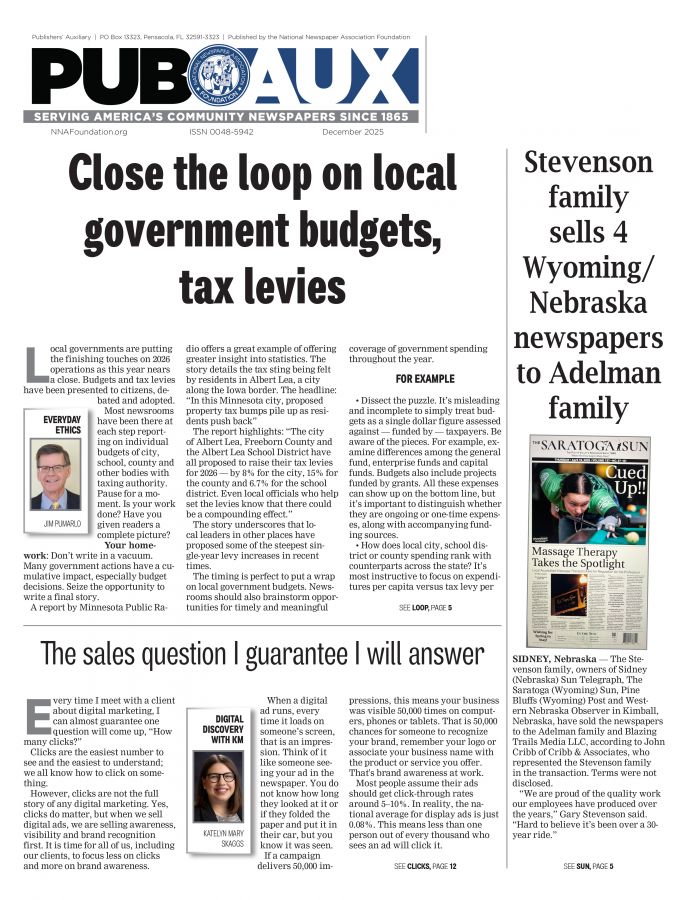NNA preps to fight proposed newsprint tariff
Feb 12, 2018
By Tonda F. Rush
NNA | Director of Public Policy & General Counsel
WASHINGTON—Alarm bells were sounded in the community newspaper industry in January when the U.S. Department of Commerce levied preliminary tariffs against the Canadian newsprint supply. Tariffs ranging from about 5 percent to nearly 10 percent for one producer were announced for collection beginning Jan. 16. The cash deposits will be held in an escrow account while federal agencies complete investigations.
On separate tracks are inquiries by the Department of Commerce and the International Trade Commission, an eight-member body that acts both as adviser to DOC and independently assesses sanctions.
Complaints last August by North Pacific Paper Company in Longview, WA, initiated the investigations. NORPAC alleges that Canadian paper producers receive unfair subsidies from their governments and that newsprint is being dumped into the U.S. at prices that are lower than those available in Canada. A preliminary finding of negative impact upon U.S. producers begins the formal process. Then a preliminary tariff can be assessed, which occurred on Jan. 8.
Now the two agencies will proceed with investigations on separate timelines as specified in U.S. law. At the ITC, in particular, a quasi-judicial process will begin at which downstream purchasers like newspaper publishers are not formally permitted to participate. Both investigations and attendant findings are expected to conclude by mid-summer.
National Newspaper Association President Susan Rowell, publisher of the Lancaster (SC) News, alerted NNA members in January that she considered the situation extremely grave.
“We are going to fight this set of proposed sanctions,” she said. “Our members will take their case to Capitol Hill on March 15 and urge members of Congress to get involved in this proceeding. Because NNA members are not permitted to directly intervene in the case, we must rely upon our elected representatives to speak out for us.
“There are many problems with this case, as we understand it. One is that NORPAC’s 260 jobs that it claims to be at stake are a drop in the bucket of the U.S. economy when you consider them against the thousands of jobs in the newspaper business, our suppliers and, most of all, our advertisers who could lose a critical marketing tool for their own businesses. Another is that most of the Canadian paper is sold in the Northeast and upper Midwest. NORPAC’s market is in the west. Tariffs would be unlikely to benefit that company. If NORPAC’s prices are falling, it is because demand for newsprint is falling, and that is likely to continue—and to be accelerated if heavy tariffs come out of the case.
“But the most concerning is that these sanctions on the North American newsprint market would certainly send a signal to paper producers to retool their mills to produce paper grades with more robust and less threatened markets. We could seriously lose critical mass in our newsprint supply,” said Rowell.
NNA is joining with a large coalition of publishers, paper producers and concerned stakeholders to counter the complaints. The News Media Alliance and Resolute Forest Products are the principals in the coalition, and are joined by other national groups. NNA’s work will be guided by its government relations committee, chaired by Michael Fishman, Morristown, TN; and Matthew Paxton IV, Lexington, VA.
tonda@nna.org







